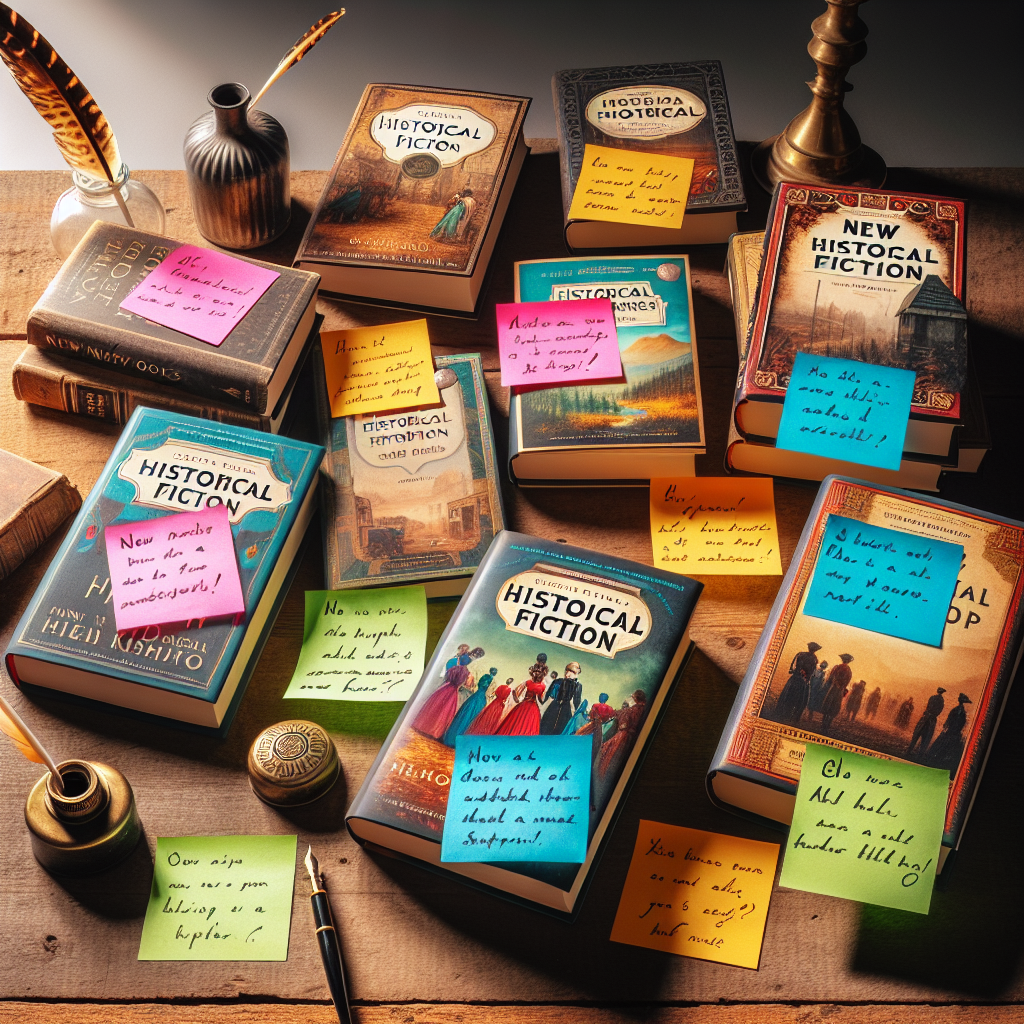As an Amazon Associate I earn from qualifying purchases.
New Historical Fiction Releases and Reviews

The allure of historical fiction lies in its unique ability to transport readers back in time, offering a window into the lives, cultures, and events that have shaped our world. This genre, a blend of meticulous historical research and imaginative storytelling, continues to captivate audiences, providing both entertainment and education. In recent years, the genre has seen a surge in popularity, with authors exploring a wide range of periods and settings. This article delves into some of the most compelling new releases in historical fiction, offering insights and reviews to guide readers in their literary explorations.
Exploring the Past Through Fiction
Historical fiction serves as a bridge between the past and the present, allowing readers to experience the complexities of historical events and societal norms through the eyes of well-developed characters. This genre's appeal lies in its diversity, with stories ranging from ancient civilizations to more recent historical events. The recent releases in historical fiction reflect this variety, with authors tackling subjects as varied as medieval Europe, the tumultuous 20th century, and everything in between.
Spotlight on New Releases
The past year has been an exciting one for historical fiction, with several standout books capturing the attention of readers and critics alike. Below are some of the most notable releases:
- “The Night Ship” by Jess Kidd – Based on the true story of the shipwreck of the Batavia in 1629, Kidd's novel is a compelling tale of survival, betrayal, and adventure on the high seas, told through the eyes of a young girl in the 17th century and a boy in the 20th century.
- “The Last Garden in England” by Julia Kelly – This novel weaves together the stories of five women across three different timelines, all connected by a beautiful English garden. It's a testament to the enduring power of places and the people who inhabit them.
- “The Dictionary of Lost Words” by Pip Williams – Set during the compilation of the Oxford English Dictionary, this novel explores the concept of language and the power of words through the story of a woman who seeks to include words related to women's experiences that are omitted from the dictionary.
These titles are just a glimpse into the rich tapestry of historical fiction available to readers today. Each offers a unique perspective on the past, brought to life through meticulous research and vivid storytelling.
Delving Deeper: Reviews and Insights
To further guide readers in their selection, here are more detailed reviews and insights into the aforementioned titles:
- “The Night Ship” – Jess Kidd's novel has been praised for its dual narrative structure, which expertly intertwines the stories of its protagonists across centuries. Critics have lauded Kidd's ability to create a sense of place and atmosphere, making the historical settings of the novel come alive. The themes of survival and human resilience resonate deeply in today's context, making it a timely read.
- “The Last Garden in England” – Julia Kelly's novel is a celebration of the beauty and healing power of nature, as well as a poignant exploration of women's lives and struggles across different periods. Reviewers have highlighted the seamless integration of historical details into the narrative, enriching the reader's understanding of the social and cultural contexts of the times depicted.
- “The Dictionary of Lost Words” – Pip Williams' work is a fascinating look at the intersection of language, gender, and power. The novel's focus on the omissions and biases in the creation of the Oxford English Dictionary offers a unique lens through which to view history. Critics have commended Williams for her original approach and the depth of her research, which shines through in the authenticity of the narrative.
These reviews underscore the diversity and richness of historical fiction as a genre. Each of these novels not only provides a captivating story but also offers insights into the periods and places they depict, highlighting the relevance of history to our present and future.
Why Historical Fiction Matters
Historical fiction does more than entertain; it educates and provokes thought. By immersing readers in the past, these novels encourage a deeper understanding of history, not as a series of dates and events, but as lived experiences. Through the personal stories of characters, readers gain insights into the social, cultural, and political contexts that have shaped human behavior and societal evolution. Moreover, historical fiction often sheds light on lesser-known aspects of history, giving voice to those who have been marginalized or forgotten.
Conclusion: A Journey Through Time
The latest releases in historical fiction offer a rich array of choices for readers looking to embark on a journey through time. From the high seas of the 17th century to the creation of the Oxford English Dictionary, these novels provide a window into the vast expanse of human history. Through detailed reviews and insights, we've explored the appeal of these new releases, highlighting their ability to blend historical accuracy with compelling storytelling. As we look to the past through the lens of historical fiction, we not only entertain ourselves but also gain a deeper appreciation for the complexities and nuances of human history. In doing so, we are reminded of the power of literature to connect us with our past, inform our present, and inspire our future.
Amazon and the Amazon logo are trademarks of Amazon.com, Inc, or its affiliates.






















































